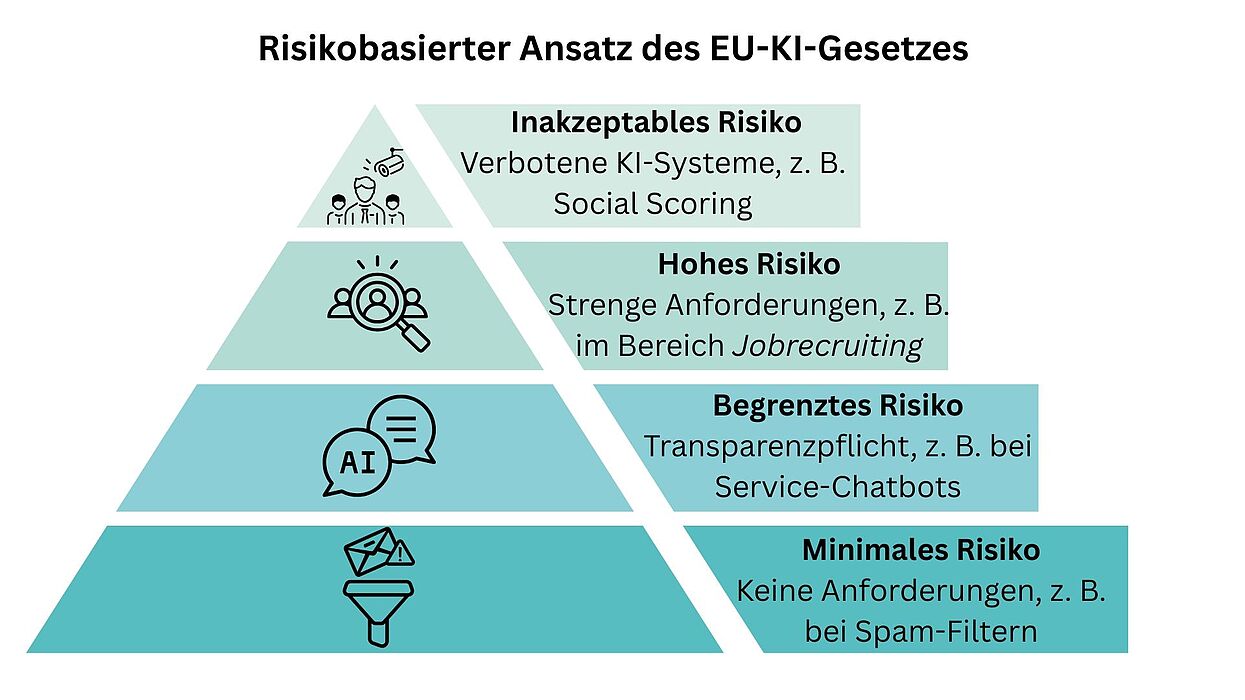The European Union has committed to the principles of responsible and trustworthy artificial intelligence (AI) by requiring mandatory risk assessments for AI systems prior to their deployment. Prior to its introduction, AI-based systems were subject to different jurisdictions under different aspects (e.g. product liability), whereas the AI Act provides a comprehensive and uniform framework legislation for AI systems in the EU. Its introduction has shifted the debate about ‘good’ AI from the discussion about ethical guidelines and voluntary commitments to the binding nature of the law. At the same time, we are in a transitional phase, as the standardization and national implementation of the EU AI law have not yet been fully completed. So far, there is little empirical evidence on how organizations, especially small and medium-sized enterprises (SMEs), are preparing for these new requirements.
Against this backdrop, the exploratory project “Regulation meets SMEs: The EU AI Act and its impact on SMEs in OWL” is investigating how SMEs in Ostwestfalen Lippe (OWL) - one of Germany's leading innovation locations - are reacting to the EU AI Act. With the help of expert interviews with managing directors and AI managers, we analyze the extent to which SMEs are aware of the law, what concrete measures they have taken or are planning and what challenges they identify during implementation. These results are embedded in the context of larger debates about responsibility gaps in technology ethics. In particular, the focus will be on challenges such as distributed action (“many hands”), complex technical systems (“many things”) and specific AI issues.
The project is being carried out in cooperation with the Association of German Engineers (VDI) and the Technical University of Munich.

